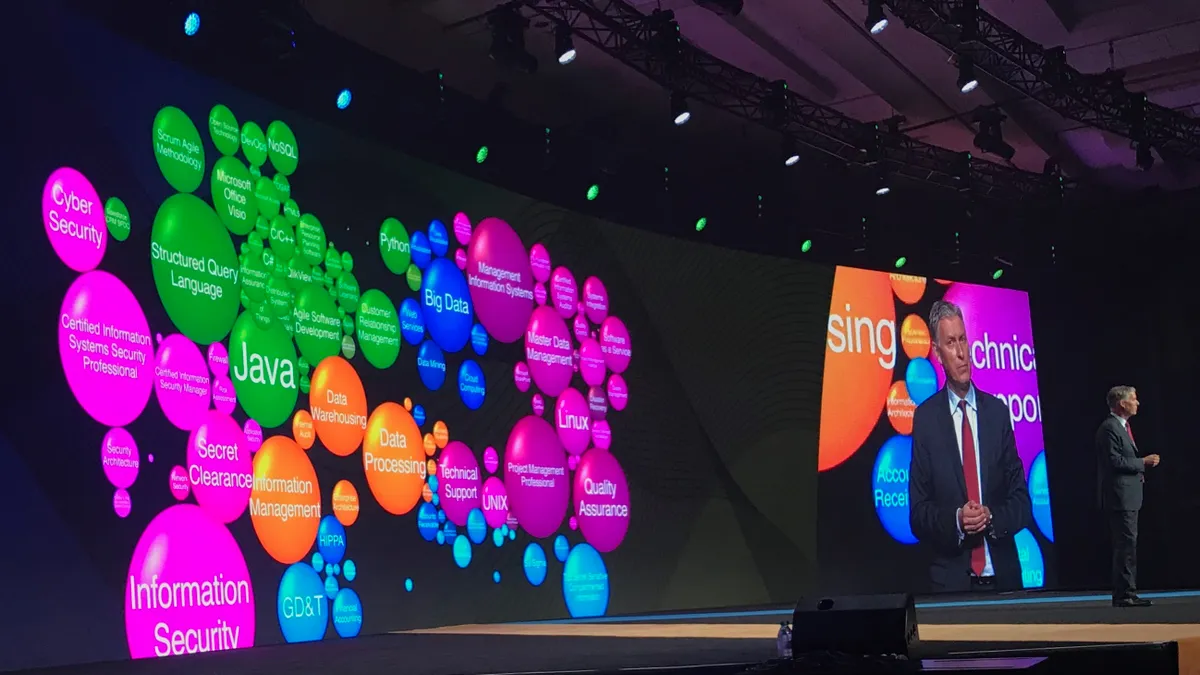IT leaders are faced with a nearly impossible task. With a crush of new technologies before them, and more on the horizon, CIOs have to dictate corporate futures and anticipate market changes their organizations are sure to face.
The reality is, companies have two options:
- Scale for a digital future or
- Face disruption
Whether in the broad retail industry or something very specific like the grocery industry, digital innovators are challenging incumbents' hold on the market, identifying new ways to conduct business.
Disruptors can cause a "digital shakeout" for leaders in any give space, particularly if the new guard in an industry identifies different distribution channels and leverages new ways to drive brand awareness, according to Peter Sondergaard, EVP and global head of research for Gartner, speaking Monday at the Gartner Symposium/ITxpo in Orlando.
While digital transformation has remained top of mind for IT leaders, businesses are confronted with a reality where it is a challenge to innovate for the future while keeping back-end, legacy systems running. Afterall, by 2023, 90% of current applications will still be in use, according to Gartner.
This isn't the first time Gartner has emphasized organizations' need to innovate or face disruption. Last year, the research firm presented a case for why CIOs must adapt to a "permanent state of upgrade," calling on the need for "bimodal" IT. With a bimodal strategy, companies can put resources toward "planning and predictable change," while also focusing on "experimental and disruptive change."
In essence, through bimodal IT, companies can keep systems running while investing in digital technology.
A number of constraints come into play as companies work to modernize for a digital future. Budget concerns aside, keeping up with talent demands is limiting companies’ ability to drive necessary internal innovation. Particularly when organizations are trying to work with emerging technologies, such as blockchain, intelligent apps and systems, immersive technology and, of course, artificial intelligence.
It's all about AI
Whether on the expo floor or speaking with attendants, AI is a focus and, in many cases, a concern for the enterprise. With disruption on the horizon, companies are clamoring to inject traditional systems with advanced computing and machine intelligence. AI is also behind the push to help digital technology become truly transformational.
In 2018, Gartner predicts three skill sets that will remain in high demand: AI, digital security and the Internet of Things.
"AI will be critical to solving both digital security and the IoT challenges," Sondergaard said. "It will be an essential defense creating a continuously adaptive risk and trust response."
Rather than injecting AI experts into the ranks of a company, organizations need to prioritize AI investments from the top down, according to Sondergaard. "Because, to get to digital and scale, you need to hire leaders who in turn will develop others."
- Starting in 2020, 1.8 million jobs will be lost because of disruption from AI.
- But 2.3 million new jobs will be created — a net positive of a half million jobs.
- By 2021, AI augmentation of the workforce will create nearly $3 trillion in business value while saving billions of hours of work helping the productivity paradigm.
Though companies are clamoring for AI talent, there is a supply problem, just as there is with cybersecurity professionals.
Worldwide the entire talent pool is 1.5 billion people, according to Sondergaard. When considering the number of IT candidates, 15 million people worldwide. Of those, about 8.8 million have IT job experience.
But only about 1,300 people have specific AI experience. Or, to put it another way, roughly one millionth of the workforce as AI experience.
There're over 2000 #jobs #hiring #AI right now but 60% of #candidates are in 50 cities globally #gartnersym #PeopleAnalytics #futureofwork pic.twitter.com/jTIngkzR8n
— Mikey McPhail (@MikeyIntel) October 2, 2017
The need for AI talent extends beyond the traditional technology and consulting career paths, and into media, insurance, transportation and banking, according to Sondergaard.
"While you need the capability, you may not be able to find the people," he said. Companies will have to get creative, and begin a multi-year strategy to find alternative talent sourcing practices, such as contracting or nurturing from within.
Technology is a necessary part of digital transformation and yet, without talent, companies will become irrelevant. Companies have to begin filling the AI talent pipeline today or face further disruption in the future.












